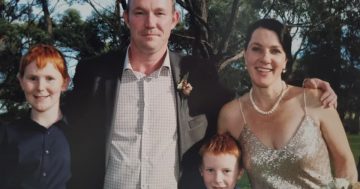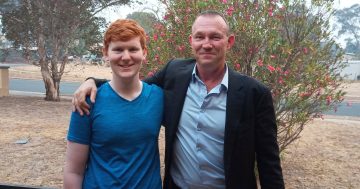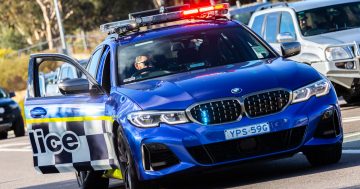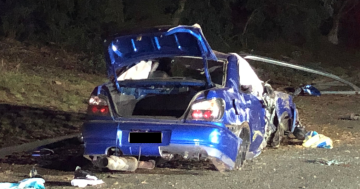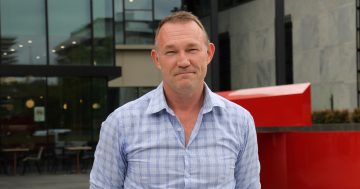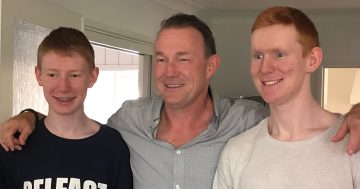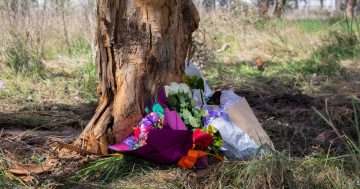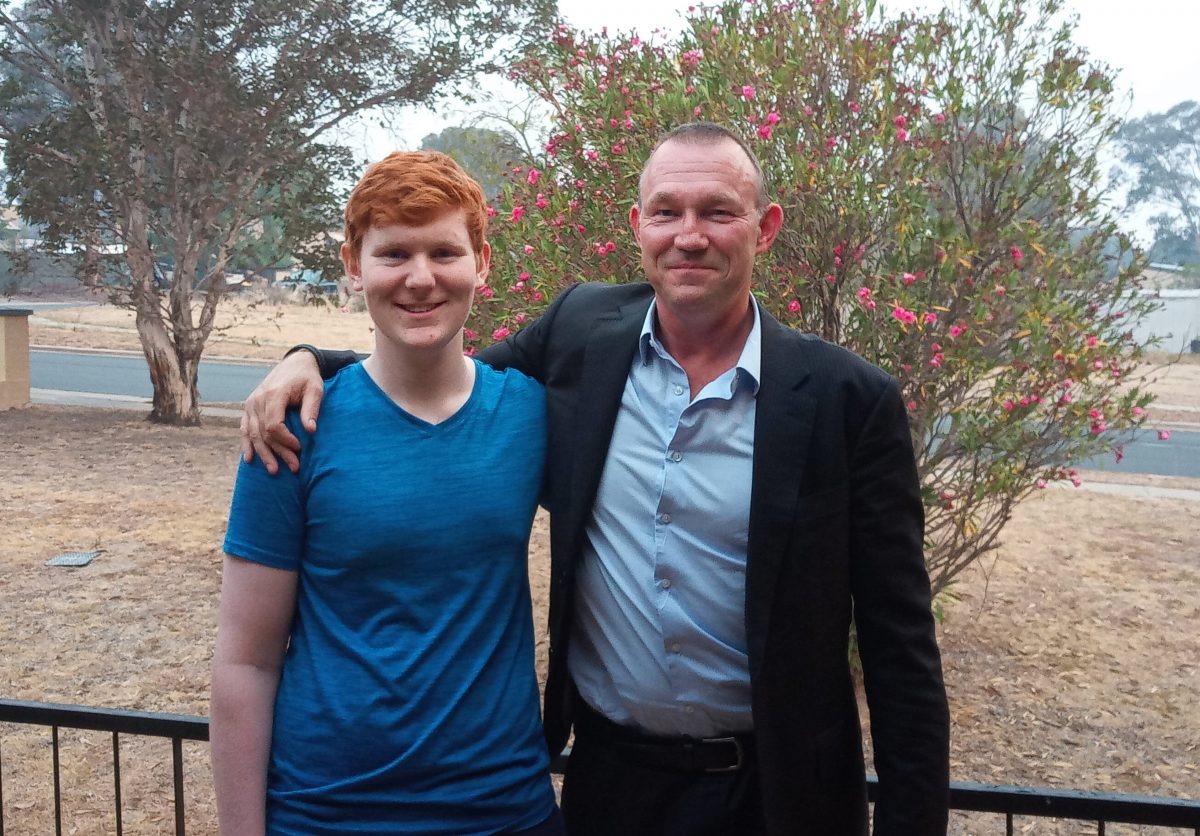
Matthew McLuckie with his father, Tom. Photo: ACT Policing.
In the past six weeks, Tom McLuckie has become more familiar with charges and penalties for serious driving offences on Canberra’s roads than he ever thought he would.
“I’d rather be doing this than doing nothing,” he said.
On 19 May, his son Matt was killed by a speeding car travelling on the wrong side of the road.
Police at the time described the 20-year-old as an innocent victim who “was not driving in any dangerous manner”. The alleged female driver of the other vehicle was still in hospital receiving critical treatment and no charges in relation to the crash have yet been laid.
In the wake of his son’s death, Tom has launched ACT now for safer roads to bring about harsher laws when it comes to serious motor vehicle offences in the Territory.
“If something like this happened five kilometres outside of the ACT in NSW, you would see very different charges and sentences,” he said.
“Police at the time told me this was an accident waiting to happen.”
Tom spent the last month researching convictions, court processes and motor vehicle crime in the community.
He said what he has come across was “very alarming”.
“There are black zones in Canberra where policing is basically non-existent,” Tom said.
“There’s a frustration around resourcing, funding and the powers police have to combat these crimes.”
Tom said he had the legal processes and charging decisions explained to him, and he knew alleged offenders could plead down to lesser charges.
“I was told it was all to do with lessening the impact on the [victim’s] family and not putting them through court or a trial,” he said.
“I’m not prepared to sit back and take whatever charges and sentences are given out.
“I’ve said, do me a favour, if the girl is ever charged, I want a murder charge.”
Tom said he felt the legal system in the ACT was geared towards the human rights of the offenders rather than finding justice for victims and their families.
“Some of these [offenders] are known to police in many cases, linked to organised crime and drugs, but nothing’s being done,” he said.
“Why are repeat offenders getting good behaviour bonds? Why are people on bail or parole getting good behaviour bonds?
“The whole system is broken.”
The campaign has called for mandatory minimum sentencing with no parole for serious motor vehicle crime, and loss of license and impounding of motor vehicles for excessive speeding and other reckless driving. It said these would fulfil recommendations from the National Road Safety Strategy 2021-2030.
“If you’re caught excessively speeding in NSW, you have your car impounded, a loss of license and criminal charges laid,” Tom said.
“But in the ACT you can go 170 km/h in a 100 zone and lose some points and get a fine. It’s incredible.”
Tom said he wanted reckless drivers in the ACT to be afraid of the consequences.
“I am not against motor vehicle enthusiasts. When I was teaching Matt to drive, I took him to Bathurst. I have no problem with people having modified cars that they drive sensibly,” he said.
“But I’ve heard stories of these people who steal cars and purposefully bait the police into chasing them. If [the pursuit] is called off, these people then loop back around and look for the same officers to engage them again.
“Matt’s accident was waiting to happen, and it frustrates me that this won’t be the last time it happens.”
A spokesperson for ACT Policing said they were aware the McLuckie family was seeking more substantial penalties for serious driving offences.
“ACT Policing regularly engages with the ACT Government on legislative changes and we support any Canberran engaging with the community and government if they believe current legislation should be changed,” they said.
“Street racing and other dangerous driving behaviours are regularly targeted by ACT Policing, with more than 1100 criminal charges laid in the past two and a half years for serious driving offences.”
The spokesperson said while the vast majority of motorists did the right thing, a “small percentage” of the community used Canberra’s roads as a “racetrack”.
“When these people are identified by police and appropriate evidence is available, they are charged before a court, and in some circumstances, their vehicles will be seized for short periods of time,” the spokesperson said.
“We are concerned that those people who participate in this type of criminal driving behaviour do not consider the very serious risk it poses.
“Travelling at high speeds on our roads results in an immediate risk to the driver, their passengers and other road users – and those risks can turn into tragic situations in just a few seconds.”
The investigation into Matt McLuckie’s death is ongoing, with police still searching for the driver of a third vehicle that allegedly fled the scene.
“While that person has not yet come forward, we urge this person to consider their actions and make contact with police as soon as possible,” the spokesperson said.
Anyone who has dash-cam footage of the crash, captured any vehicle driving in an unusual manner in the area around the time of the collision or with any information about the incident is urged to contact Crime Stoppers on 1800 333 000. Quote reference number P2075137.












